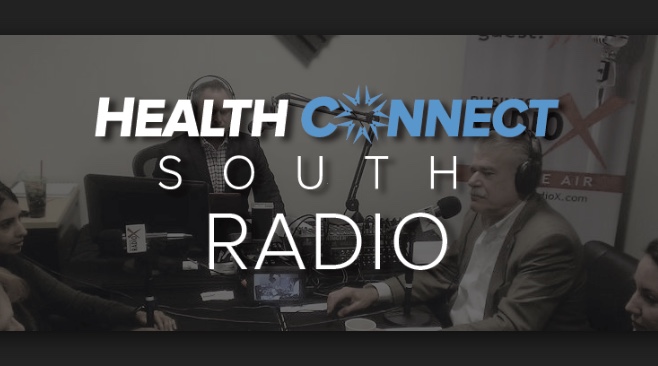T3 Labs and GCMI always stand ready to help new medical devices and their innovators advance from ‘back of the napkin’ ideas often generated in clinical practice from concept to commercialization and eventually, to cure.

Deepal Panchal – Program Director at T3 Labs
Recently T3 Labs’ Deepal Panchal joined Health Connect South Radio Host CW Hall and Dr. Neil Weintraub, MD, Kupperman Eminent Scholar in Cardiovascular Medicine & Professor of Medicine, Augusta University/Medical College of Georgia, for a conversation surrounding innovation pathways and new interventions for cardiology including one that has shifted therapy from a long open heart operations to minimally invasive transcatheter therapy significantly reducing OR and patient recovery time.
Here are a few of the highlights:
CWH: Are innovations in cardiology born from physician entrepreneurs in most cases or others?
DP: They usually start with physician entrepreneurs working in hospitals identifying room for improvement generating a ‘back of the napkin’ idea, which is then passed to engineers, designers and larger manufacturers to redesign or development.
CWH: What does the process from back of the napkin to commercialization look like?
DP: Partnerships are important in medtech innovation. Any new device requires a network of experts in multiple fields including prototyping, testing, regulatory, submissions, data analysis and more. That’s where T3 and GCMI come into play. We help entrepreneurs get from concept to cure to commercialization in one spot.
Fabrication is one good example that is often a reality check for physician innovators. If you haven’t imagined how your device will work mechanically in a patient, that is something that needs to be determined early in the device’s development process.
CWH: How can physician innovators accelerate the process?
DP: The medical device development lifecycle is not short and is full of ‘$1,000 days.’ Every day spent trying to prototype, design, test or train physicians adds to the overall budget. Our goal is to minimize those.
Save your time and money and leave it to the experts. Get the right people in the room: including preclinical study designers who will build and lead the preclinical tests needed to gather data required by the FDA. Highly qualified, efficient preclinical testing labs and CROs like T3, design studies from start to finish including compilation and organization of the data in a way that reduces those $1k days.
CWH: What are some recent examples of new products brought to life by physician innovators and T3?
DP: Transcatheter mitral valve replacement, coronary stenting and fully resorbable stents are some of the most exciting things in the cardiology space we are working on. ALung’s respiratory assist system, which went through preclinical testing at T3 Labs, was approved for emergency/compassionate use.
The transcatheter mitral valve replacement is amazing. I remember seeing mitral valve replacement done surgically. It used to involve a five to six hour operation. Now we can replace those valves in a transcatheter procedure through the femoral artery, typically in a procedure that lasts 1 hour or less.
We also supported the research and development of bio-resorbable scaffolds that are beginning to challenge legacy stenosis technologies, which are prone to high rates of restenosis, for cardiac patients.
CWH: When a company, innovator and new devices comes through GCMI and then T3 – what can clinicians’ expect?
DP: T3 offers preclinical testing and training. For devices already on the market, we train the companies’ sales forces and the physicians using the devices. Many times redesign is needed. That’s where preclinical testing comes into play. We help design protocols on how the device will be implanted. Study directors suggest improvements based on those studies. Have you considered the impacts of leaving it implanted for 90 days? What happens when it sits there for nine months? We help that process move along, then produce the final study report for regulatory submissions based on our collective study data generated.
CWH: If a physician has an idea for a new product, but isn’t sure what to do with it, what should they do?
DP: Call T3! (laughs) We realize the difficulty for entrepreneurs to navigate the medtech and medical device
space. Who is going to give the best advice on regulatory bodies or approvals to pursue? At GCMI & T3, odds are a member of our team, including our engineers, have seen a similar device. Our goal is to find the most efficient way to optimize your time and utility of the device. If you have a back of the napkin idea, call GCMI first for market analysis, IP and prototyping. When that’s complete, T3 can help with all of the next-step testing and training required to make commercialization a reality.
CWH: What are you working on now that’s particularly exciting?
DP: Working at T3 is a biomedical engineer’s dream come true. We see new devices all of the time. Thanks to our new relationship with Georgia Tech and GCMI, we work even more closely with GT investigators and the Coulter Translational Program participants, who are developing new devices for cardiology including IVUS (intra-vascular ultrasound to visualize the inside of a blood vessel). There is also an ongoing projects for cardiac regeneration using stem cells for kids born with heart defects. It’s powerful stuff.
CWH: Types of partnerships are you seeking?
DP: We would love to collaborate with any physician entrepreneur that wants to accelerate their device’s time to market. Bring us the back of the napkin and with our combined resources, we will help evaluate, prototype, bring it into reality and test it. We are also seeking partnerships with venture capitalists or angel investors that work in the space. Chances are they have access to entrepreneurs that we don’t, particularly entrepreneurs that don’t know what to do with back of the napkin ideas.
You can listen to the entire show here:
If you have a back of the napkin idea and need some guidance contact info@t3labs.org or call (404)894-5227
